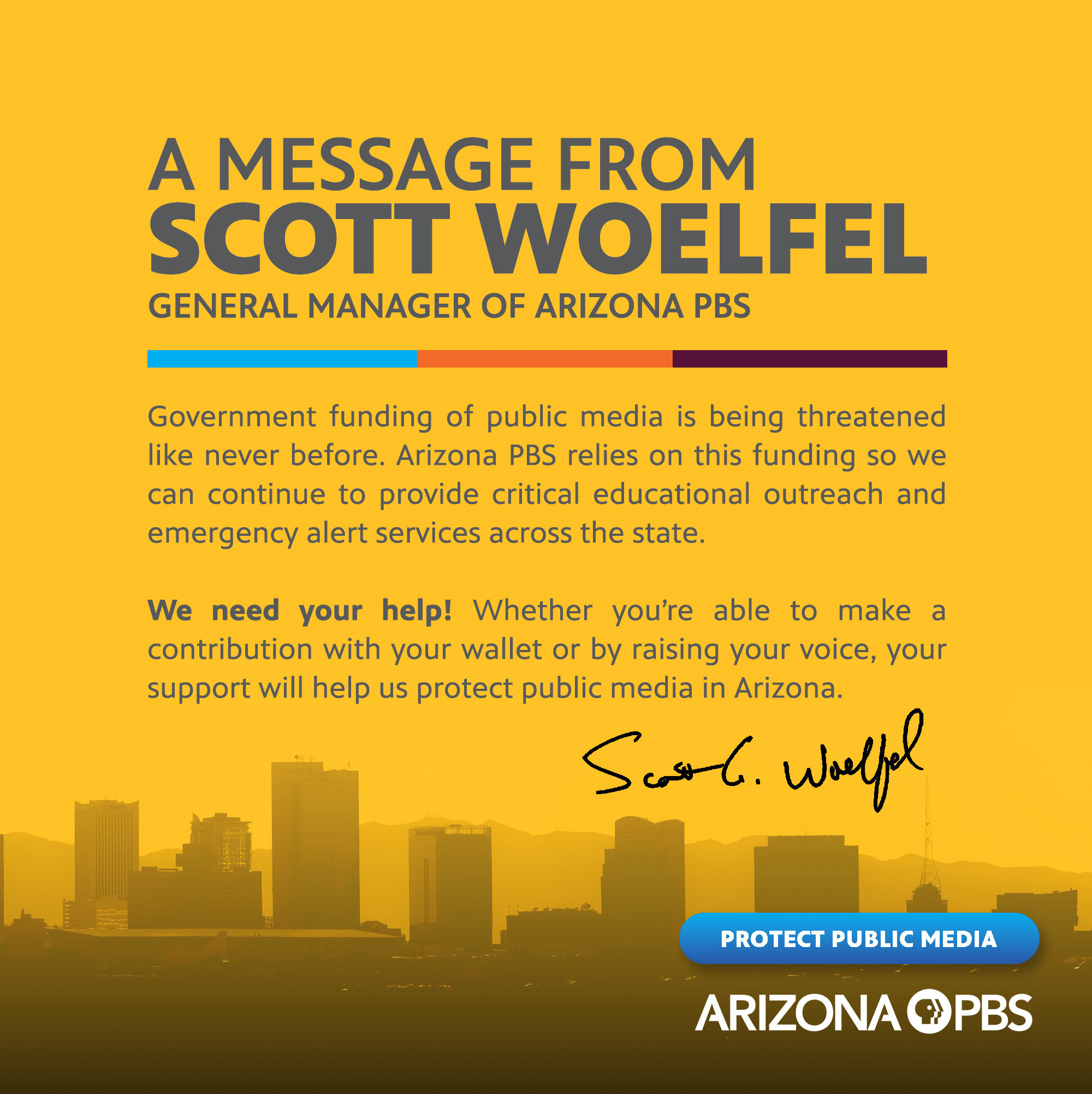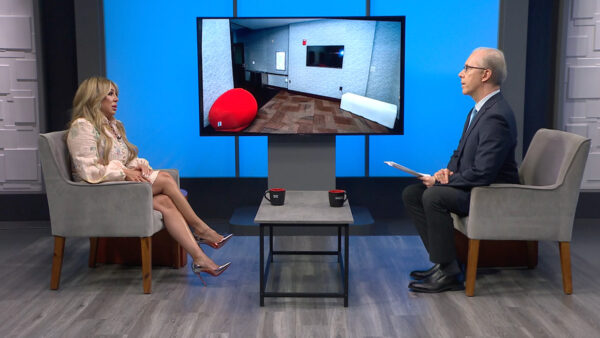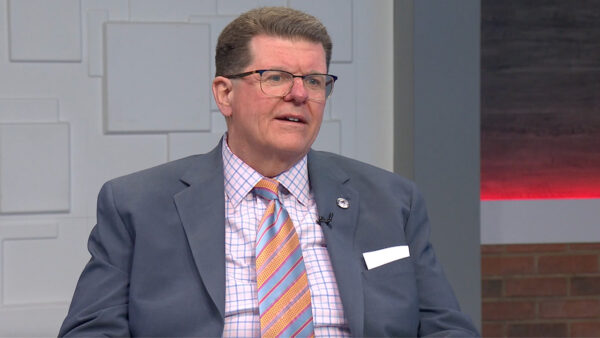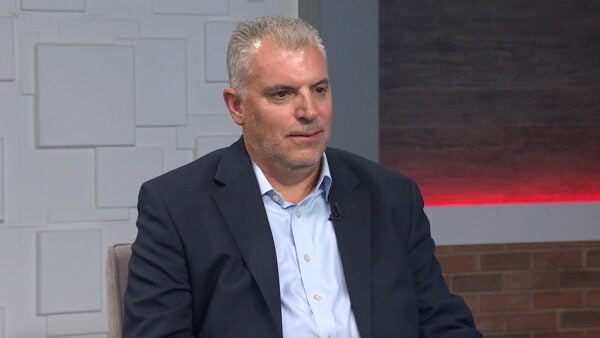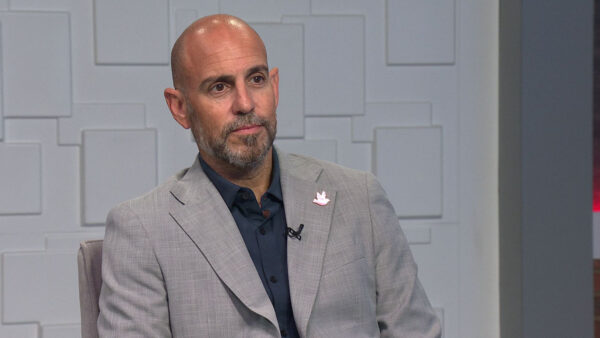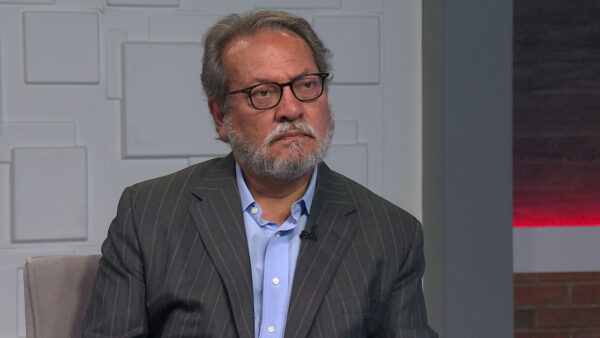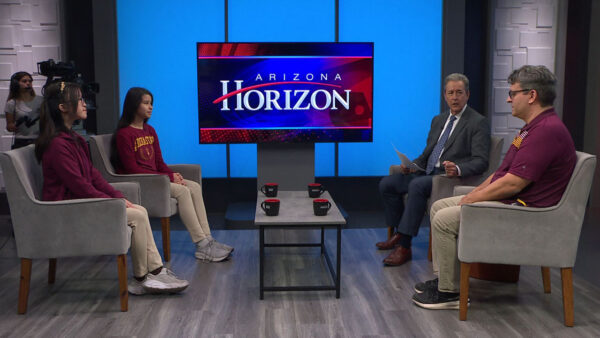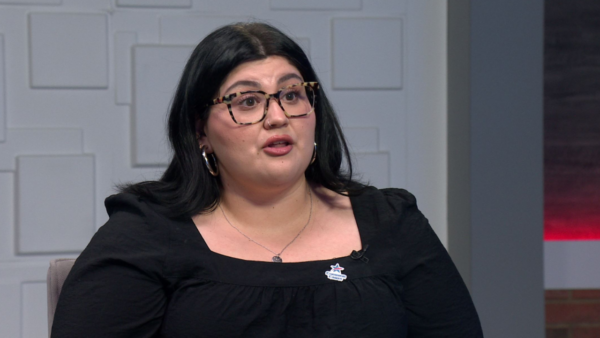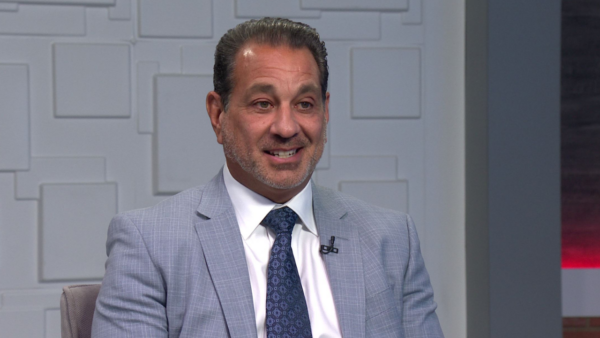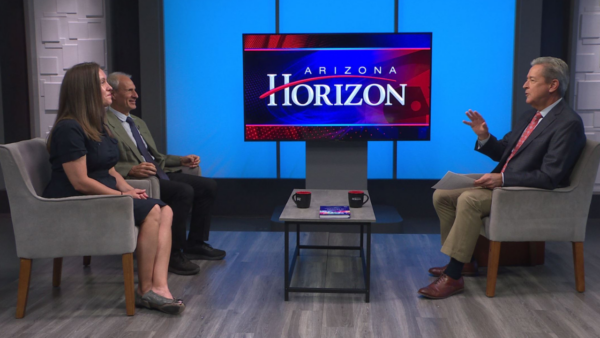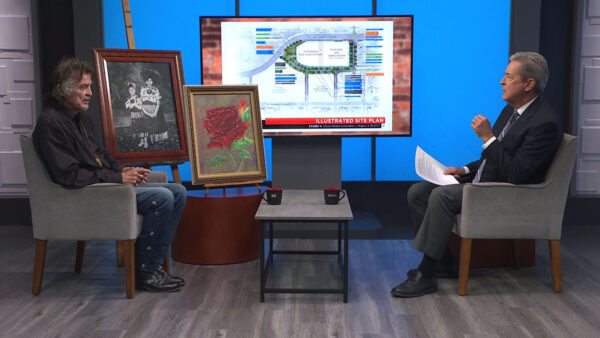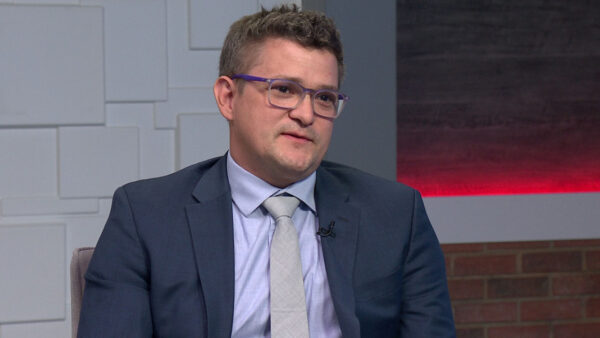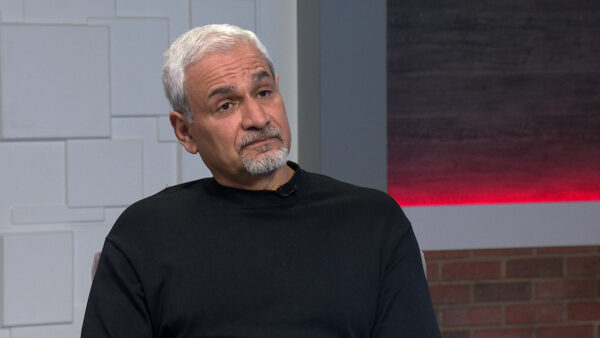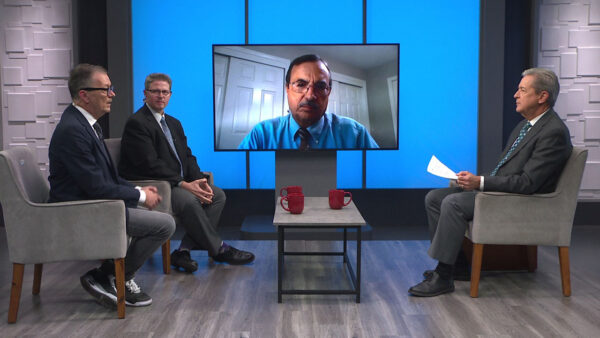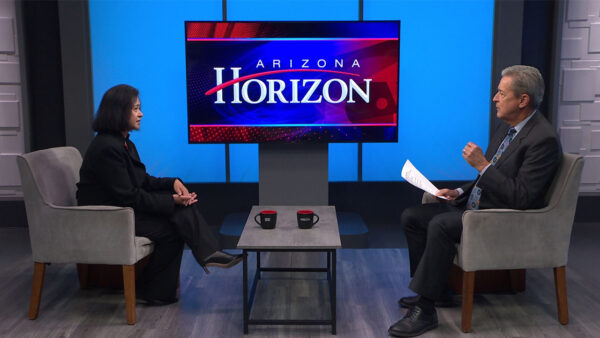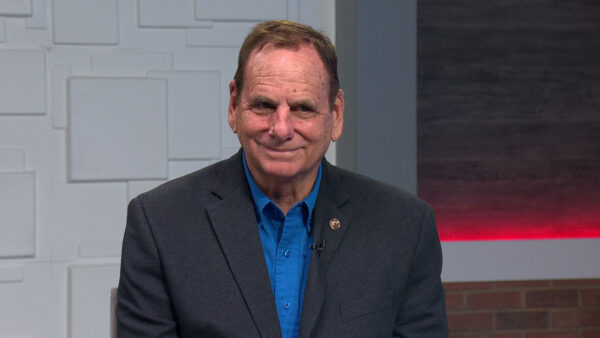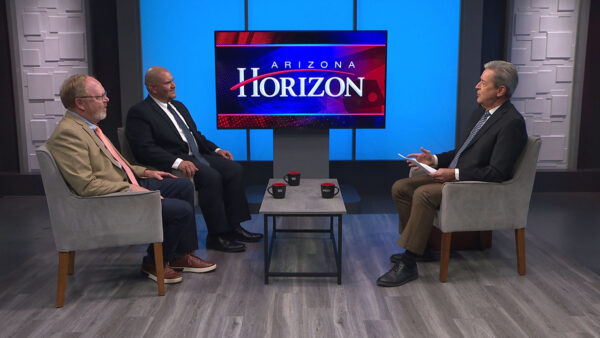A Russian jet has been shot down by Turkish forces, something that has not happened between a NATO country and Russia in decades. Paul Kinsinger, a clinical professor of business intelligence at the Thunderbird School of Global Management, will discuss the situation.
TED SIMONS: Coming up next on "Arizona Horizon," a Russian fighter jet is shot down by Turkish forces. We'll discuss the possible ramifications. Phoenix mayor Greg Stanton is here for his monthly discussion on city issues. And the latest news from south of the Gila in our regular feature, "southern exposure." That's next on "Arizona Horizon."
"Arizona Horizon" is made possible by contributions from the friends of eight, members of your Arizona PBS station. Thank you.
TED SIMONS: Good evening and welcome To "Arizona Horizon." I'm Ted Simons. The U.S. Supreme Court will allow Arizona secretary of state Michele Reagan to offer oral arguments in a challenge against the makeup of the state's legislative districts. Reagan agrees with the plaintiffs in the case that the state's redistricting commission unconstitutionally favored democrats by overpopulating some legislative districts and under-populating others. Those oral arguments will be heard December 8th. And a new poll shows that more than 2/3 of Arizona's voters would rather raise taxes than cut school funding. The poll was conducted by ASU's Morrison institute for public policy. The survey also shows that 56% agree with the governor's plan to use more money from the state's land trust to fund education and that half of respondents agreed that the academic gap between white and Latino students is a top education priority for the state.
TED SIMONS: A Russian jet was shot down today by Turkish forces, who claim that the jet violated Turkish air space, a claim that Russia vehemently denies. Here now is Paul Kinsinger, a clinical professor of business intelligence at the thunderbird school of global management. To help us kind of make sense. Thank you for joining us. We appreciate it.
PAUL KINSINGER: My pleasure.
TED SIMONS: Just your thoughts on today's incident. It sounds like a big deal. Is it a big deal?
PAUL KINSINGER: Well, it is a big deal today and maybe for a couple of days. I don't think either side is going to want to make this last as a big deal. There's way too much at stake on all sides.
TED SIMONS: Russia said it was in Syria air space. Turkey says that's not the case. Who do you believe?
PAUL KINSINGER: Well, the maps that I have seen show that if this Russian plane crossed Turkish air space, it was crossed a very small finger of the southernmost tip of Turkey that dips into the northwest corner of Syria. So, if that was the actual path, Russian plane was in Turkish air space for seconds, potentially. But if it was, it was. And, you know, that's international law at that point.
TED SIMONS: Turkey said it warned the pilots up to 10 times, don't do it. There are reports that Russian planes have either been violating Turkish air space or coming very close to it. All valid?
PAUL KINSINGER: Yeah, I wouldn't be surprised by that. Russians are flying military missions in this corner of Syria to support the Assad government. I'm sure when you take these wide sweeps and turns, eventual little you will cross a border, come on a gray line and these things will happen in combat situations.
TED SIMONS: Russia says there will be serious consequences. Like what?
PAUL KINSINGER: As we have seen with Vladimir Putin in the last couple of years, he likes to rattle the saber and unleash the Russian bear on the -- to the social media, and the noise machines out there. But, you know, Russia has a lot at stake in this situation here. They have a lot at stake in trade with Turkey. So does Turkey with Russia. I don't think this is going to come to anything more major than some noise, some hand slapping. Russians may issue a few economic sanctions and keeping tourists out and so on and so forth. They will make Turkey pay a bit, but I believe it will be economic and not military.
TED SIMONS: I keep reading that Turkey and Russia, a symbiotic relationship regarding natural gas either going to Turkey or through Turkey. Is that compromised by --
PAUL KINSINGER: Russia's economy has taken a major hit because of sanctions -- four to five percent drop in GDP. A hit on an economy already suffering with lower oil prices around the globe in the last several years. Does Putin want to cut gas to Turkey in a punishment? Maybe for a week or two he might try something. Maybe a slowdown, maybe, as a way to get at this. But does he want to further damage Russia's economy? I don't know. Do the Turks want to take a chance on damaging their economy by taking some counteraction on these proposed gas lines, I don't think that is a wise idea either. Turkish economy is not in very good shape right now. A big election, but he can't afford to let this economy float sideways.
TED SIMONS: You mentioned Turkey, Russians, Putin is saying, that Turkey is essentially supporting ISIS, not only by downing the fighter jet but by buying illicit oil. Turkey is a major buyer of this and thus major financier of ISIS. Is that a valid point?
PAUL KINSINGER: Well, I suspect that there are Turkish ties into ISIS, some of the ISIS players. I doubt very much they are government sanctioned. I suspect they are, you know, independent oil traders. As we talked about before, Turkish oil traders long involved in the illicit movement of Iranian oil, Iraqi oil, and probably Syrian oil to Turkey through ports where it gets moved on to end-use buyers. This is a big, bizarre business going on for a long time.
TED SIMONS: So Putin has a bit of a point there --
PAUL KINSINGER: Bit of a point. ISIS gets a lot of support from different places. Just as in cases of Al-Qaeda, to turn off all of the biggest supports takes a coordinated effort by banking centers, by governments, by other key nodes where money passes through and money is transacted.
TED SIMONS: NATO's position in all of this. What do we expect to see?
PAUL KINSINGER: You know, I think Turkey is a member of NATO and has the ability to call upon NATO whenever there is a violation of Turkish air space or an attack on Turkey, just as there was on France and so on and so forth. NATO members can all do this. There will be a deliberation about this. My guess is that no one in NATO wants to poke the Russian bear any further about this, and so I don't think there will be much other than some kind of an official statement urging all sides to calm and let's focus on the real bad guys which are ISIS and the need to bring about a resolution of this situation in Syria.
TED SIMONS: And the U.S. position, I would imagine somewhat similar to NATOs?
PAUL KINSINGER: Yeah, exactly.
TED SIMONS: With that in mind. The two major players here, Russia and -- Russia, the major player here, why are they so interested in Syria? They got the base there, I understand that. But they are putting a lot of prestige, a lot of military capital to work here and this is a very dicey region. Why are they so interested?
PAUL KINSINGER: For Americans to understand the Russian situation, you have to go back to, you know, Soviet Union time and the middle east and the third world, as we called it then, emerging markets as we call it today. Soviet Union was very involved in the third world, it had a string of allies in the Arab world, Algeria, Iraq, Syria, Egypt, these were critical partners to the Soviet Union. One by one they have fallen to the wayside. Russia has seen a lot of Soviet prestige be parked in a side lot like a bunch of bad junk. The Consequence is Russia, a very proud nationalist population with an even prouder nationalistic president in charge of it, feels as if the west doesn't take it seriously, doesn't treat it as if it is a major player and this is a way, frankly, for Russia to get back to the roped off table in the big room.
TED SIMONS: We were at that table, cards in the game, all of the sudden they are trying to keep us out. We belong in that game.
PAUL KINSINGER: Yes, their remaining card on the table in the Middle East is the Assad regime and Syria. Since no one has been able to push the Assad regime out yet, Russia saw an opportunity I believe to get back in the game, put stakes on the table and get back in the game because their card it the regime in Damascus.
TED SIMONS: Last question, on a scale of one to 10. One, no big deal, 10 the start of world war III, towards incident --
PAUL KINSINGER: A one or a two.
TED SIMONS: You think so?
PAUL KINSINGER: Yes, I do.
TED SIMONS: Paul, good to have you here. Thank you for joining us.
PAUL KINSINGER: You bet. Thanks.
VIDEO: Get the inside scoop on what's happening at Arizona PBS. Become an eight insider. You'll receive weekly updates on the most anticipated upcoming programs and events. Get the eight insider delivered to your email inbox. Visit azpbs.org to sign up today.
Paul Kinsinger: Clinical Professor of Business Intelligence at the Thunderbird School of Global Management
